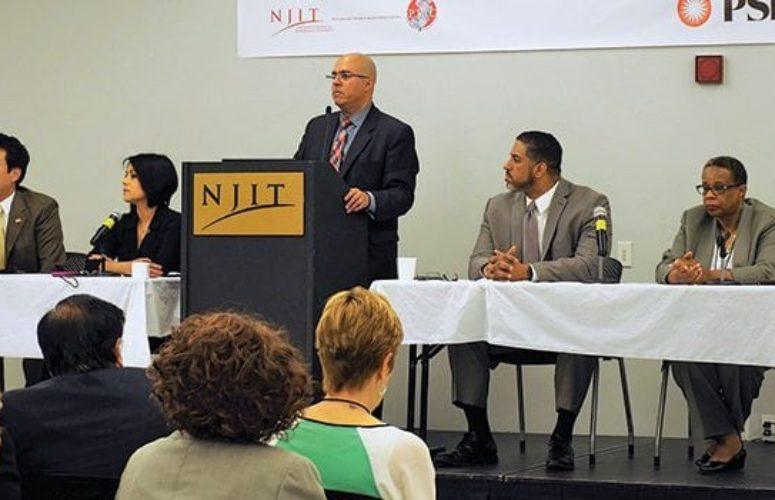
Government Contracting Assistance
Procurement opportunities are not a hassle thanks to expert help and web-based applications.
By Anthony Birritteri, Editor-in-Chief On Aug 14, 2017Obtaining a government contract, whether local, state or federal, may seem daunting to a small business due to all of the registrations, certifications and verifications that solicitations or request for proposals (RFPs) require.
Additionally, in bidding for a contract, small business owners can be in competition with hundreds of other businesses throughout the United States. Throw in the concern of dealing with perceived slow government bureaucratic processes and one can understand why any small business owner would make an “about face” when approaching government contracting.
But contracting opportunities exist, as the federal government spends $280 billion annually on goods and services. Small businesses just need to take the time to meticulously review the RFPs and carefully submit their proposals, making sure all the i’s are dotted and t’s are crossed.
Expert assistance in this realm is available in New Jersey through entities such as the Procurement Technical Assistance Center (PTAC) located at the New Jersey Institute of Technology. Established 31 years ago and funded through the US Department of Defense’s Defense Logistics Agency and NJIT, the NJIT PTAC is one of 98 similar offices nationwide (plus Puerto Rico and Guam) that offer free technical assistance to small businesses seeking to sell their products and services to government contractors and agencies on the federal, state and local levels. With 550 active clients, the NJIT PTAC has helped 4,000 New Jersey small businesses obtain more than $525 million in contract awards since August, 2016. It serves 20 of the state’s 21 counties. Union County has its own PTAC offered through the UCEDC (Union County Economic Development Corporation). In 2016, the UCEDC PTAC helped businesses obtained $168 million in government contracts.
According to Raul Mercado, director of the NJIT PTAC, the center provides clients with customized one-on-one counseling. “Our counselors are able to learn and understand what clients’ needs and niches are. Then, we try to connect them with opportunities in both the public and private sectors.”
Businesses must register with the federal System for Award Management database at SAM.gov if they want to take part in the federal government procurement and contracting process. On SAM, they are able to upload their business resume with factors including capabilities, size, location, experience and ownership.
The individual business’s information inputted into SAM.gov also populates the US Small Business Administration’s Dynamic Small Business Search (DSBDS) database, which is another tool used by contracting officers to identify potential small business contractors.
The PTAC assists small businesses with certifications, such as the following from the US Small Business Administration (SBA): Historically Underutilized Business Zones (HUBZone); the 8(a) program for small disadvantaged businesses; Women-Owned Small Business; and Economically Disadvantaged Women Owned Small Business.
There is also Veteran-Owned Small Business and Service-Disabled Veteran-Owned Small Business certifications, with the NJIT PTAC housing two Center for Veteran Enterprise counselors who are available to help such businesses in these areas.
Mercado comments that certification is not one size fits all. “I have been asked many times, which is the best certification, and my answer is, ‘It depends on what the customer is looking for,’” he says.
Certifications and registrations can depend on the industry sector. They can also depend on the state in which the work will be performed. “You may be certified in New Jersey, but you are talking to a prime contractor who is in New York State, who wants you to have Empire State Development Corp. certification. Individual counties have their own goals (requirements) as well. So, the whole process is confusing, but we try to assist our clients throughout the various procedures,” Mercado says.
The PTAC provides its clients with an Electronic Bid Matching Service in which information is collected on a small business, including key words that would trigger a government solicitation to be sent via e-mail. Mercado says the PTAC is in enhancing this service with more market intelligence functions (expected to debut this month).
The PTAC does not work with startup companies. All businesses must have a proven track record. For those that do, the PTAC offers online training, including webinars, to help businesses get on board and understand the entire government contracting process.
If a small company wants to respond to a solicitation, a PTAC counselor will review the government or subcontractor RFP while the client works on the proposal. The counselor would then review the proposal to make sure it is in line with the solicitation.
“You could easily make a mistake if you have the wrong font, too many pages, or if you miss a particular question. What we do is provide that extra level of service, which is free. We give the client an extra set of eyes to review the proposal. There is no guarantee that it is going to win the bid, but it gives the business a better chance,” Mercado explains.
A PTAC counselor will also tell the business client if the RFP is beyond its capabilities. For example, Mercado says, “It can be a solicitation for a $500,000 contract, but your business is making just $100,000 (per year). So the project would probably be too big for you to handle at this point.”
To register for PTAC assistance, businesses should visit http://njitptac.ecenterdirect.com.
While PTAC assists with RFPs or solicitations from local, state and federal government entities, the New Jersey Department of Treasury’s Division of Purchase and Property (DPP) solely handles contracting services for state agencies. According to Maurice A. Griffin, DPP director, “This represents hundreds of millions of dollars in contracts, and it’s everything from pens and pencils and computer systems, to salt for the roads, for example.” He mentions that there is a separate Treasury division that handles construction/architectural-type contracting, but “DPP represents the bulk of state contracts.”
NJSTART.gov is the state’s e-procurement system on which businesses register. At press-time, 21,000 vendors are registered with NJSTART, while there are some 2,000 active contracts.
“Designed to be a one-stop-shop, potential bidders can register their company name and contact info on the site and select commodity codes for the types of products and services they would be interested in bidding on,” Griffin explains. “When we solicit for bids, we do it by those codes. This gives bidders the opportunity to be in control of the notifications they receive for different contracts. It also gives DPP the opportunity to get everyone registered and that we have all the information in one place.”
Besides the RFP’s bid specification requirements, businesses across the board must adhere to New Jersey statutory requirements. These include: obtaining a New Jersey business registration certificate, which can be accessed at the NJ Department of Treasury’s Division of Revenue and Enterprise Services’ website at www.state.nj.us/treasury/revenue; pay-to-play requirements (certifying that a business has not made political contributions above a specific amount); filling out an ownership disclosure form (related to the pay-to-play rules); and filling out the Disclosure in Investment Activities in Iran form (a state and federal requirement in which businesses have to certify whether or not a business is doing business in Iran).
“Once you have gotten over the statutory requirements hurdle, then it’s all about dealing with the work requirements. For example, if you are bidding on a project to make a widget that needs to be 5’’ x 7’’ and your proposal says you will be providing a widget 3’’ x 3’’, you don’t meet the scope of the requirements,” Griffin says.
Asked what are some common mistakes people make in their bid proposals, Griffin says it ranges from people selecting and uploading the wrong documents from their computers to not fully completing or signing forms. “We always tell people to triple check everything and make sure all the i’s are dotted and t’s are crossed,” he says.
“There are quick reference guides on our website to walk you through the step-by-step process of submitting an electronic bid,” Griffin says. “However, if you come across an issue in which you have a question, you can talk to someone in our vendor admin unit who can walk you through the process on how to submit. We can’t [give preference to] one bidder over another, but if it’s a general question on how to submit, we could offer assistance.”
Asked if the state and DPP give special preference to New Jersey-based businesses, Griffin explains, “If we would give preference, it would be a disadvantage to those same New Jersey businesses when they bid for contracts in New York or Pennsylvania, for example, because those states would hold it against them.” In short, it would ruin their chances of getting bids in other states.
Just as PTAC’s Mercado says he looks to assist experienced companies, Griffin comments that in looking at bid proposals, “We look at whether or not [companies] have successfully completed contracts.” That said, he adds, “What we don’t want to do is skew the awards to only businesses that have done it before. You want to give everyone a level opportunity to be awarded a contract.”
For businesses interested in obtaining a government contract for the very first time, PTAC’s Mercado explains that bidding on a subcontract with a larger company doing business with a government entity is the “low hanging fruit.” He also recommends starting with local municipalities and county governments to get one’s feet wet, then moving up the government ladder.
Related Articles:






